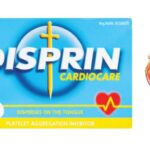Singulair Black Box Warning

Black Box Warnings now known as Boxed warnings are the highest safety-related warning that medications can have assigned by the Food and Drug Administration. These warnings are intended to bring the consumer’s attention to the major risks of the drug. Medications can have a boxed warning added, taken away, or updated throughout their tenure on the market. Over 400 different medications currently have boxed warnings.
Boxed warnings typically apply to a particular drug cohort rather than one specific drug; this is because usually, the severe risk is associated with the mechanism of action and its undesired effects on the body, therefore applying to several medications within a class. Medications with boxed warnings associated with them may have adverse financial consequences as these warnings can affect the marketability of the drug and generate negative news reports.
What is Singulair?
Singulair is a prescription medicine that blocks substances in the body called leukotrienes. This may help to improve symptoms of asthma and inflammation of the lining of the nose (allergic rhinitis). Singulair does not contain a steroid. Singulair is used to:
1. Prevent asthma attacks and for the long-term treatment of asthma in adults and children ages 12 months and older. Do not take Singulair if you need relief right away for a sudden asthma attack. If you have an asthma attack, you should follow the instructions your healthcare provider gave you for treating asthma attacks.
2. Prevent exercise-induced asthma in people 6 years of age and older.
3. Help control the symptoms of allergic rhinitis such as sneezing, stuffy nose, runny nose, and itching of the nose. Singulair is used to treat the following in people who have already taken other medicines that did not work well enough or in people who could not tolerate other medicines:
• outdoor allergies that happen part of the year (seasonal allergic rhinitis) in adults and children ages 2 years and older, and
• indoor allergies that happen all year (perennial allergic rhinitis) in adults and children ages 6 months and older.
What are the possible side effects of Singulair?
Singulair may cause serious side effects, including:
• Increase in certain white blood cells (eosinophils) and possible inflamed blood vessels throughout the body(systemic vasculitis). Rarely, this can happen in people with asthma who take Singulair. This sometimes happens in people who also take a steroid medicine by mouth that is being stopped or the dose is being lowered.
Tell your healthcare provider right away if you get one or more of these symptoms:
•
o a feeling of pins and needles or numbness of arms or legs
o a flu-like illness
o rash
o severe inflammation (pain and swelling) of the sinuses (sinusitis)
The most common side effects of Singulair include:
• upper respiratory infection
• fever
• headache
• sore throat
• cough
• stomach pain
• diarrhea
• earache or ear infection
• flu
• runny nose
• sinus infection
These are not all the possible side effects of Singulair. Call your doctor for medical advice about side effects. You may report side effects to FDA at 1-800-FDA-1088.
Singulair Black Box Warning
In March 2020, the Food and Drug Administration (FDA) strengthened previous warnings for Singulair, requiring a “black box” warning. The black box warning for Singulair describes psychiatric side effects such as aggression, depression, agitation, sleep disturbances, suicidal thoughts, and suicide. You can read Singulair’s complete black box warning here.
The FDA advises that Singulair should not be the first choice treatment for mild allergic rhinitis, which is another name for seasonal allergies and hay fever. That is the advice FDA gives when a treatment is not as safe or not as effective as an alternative treatment that is available. The FDA also recommends that healthcare providers weigh the potential risks and benefits before prescribing Singulair for asthma.
According to the FDA, because of the risk of mental health side effects, the benefits of montelukast may not outweigh the risks in some patients, particularly when the symptoms of disease may be mild and adequately treated with other medicines. For allergic rhinitis, also known as hay fever, we have determined that Singulair should be reserved for those who are not treated effectively with or cannot tolerate other allergy medicines.
What are the risks?
Any person can report problems arising from the use of a medication or medical device to the FDA. These side effects or complications are called “adverse events.” Adverse events can be reported using FDA’s MedWatch program through this website. Of the over 19,000 reports of adverse events that FDA has received since the drug’s approval in 1998, more than 10,000 of those reports have been about psychiatric or nervous system adverse events. They included aggression, irritability, agitation, disorientation, attention disturbances, stuttering, hallucinations, insomnia, memory impairment, obsessive-compulsive symptoms, anxiety, depression, suicidal thoughts, and even suicide. More than 7,000 of those adverse events are considered serious, and they occurred almost equally in adults and children. From 1998 to 2019, FDA received reports of 82 suicides among people using Singulair. Only 64 reports of suicides included the patient’s age, but 19 of those were in patients ages 16 and younger. Most of the patients who committed suicide had no history of mental illness.
When Singulair was approved, these risks were not known or well understood. These serious adverse events were revealed when patients and parents of patients brought attention to them, leading to more research. Some of these side effects of Singulair appeared or continued even after patients stopped taking Singulair. Studies done in rats showed that Singulair enters and affects the brain, but it is unclear whether it affects the human brain in permanent ways. However, researchers are now studying whether a version of this drug could help Alzheimer’s patients, which indicates a belief that it can have a long-term impact on the human brain, whether positive or negative.
In 2019, the National Center for Health Research testified before the FDA about these neuropsychiatric side effects, urging that the FDA require a brief and easy-to-understand medication guide to be provided to patients before Singulair is prescribed to them.
You can report any drug-related adverse event you observe or are informed about during patient visits if you are a healthcare provider. These reports help to alert the FDA of side effects that may not be covered in a drug’s package insert, important safety information, or medication guide, and can lead to the addition of new boxed warnings. To report an event, you can submit an electronic form, mail a report form to the agency, or call them directly (1-800-FDA-1088). Once you report an event, you can monitor the status of your report, or ask for the general information regarding adverse events associated with the therapeutic.





